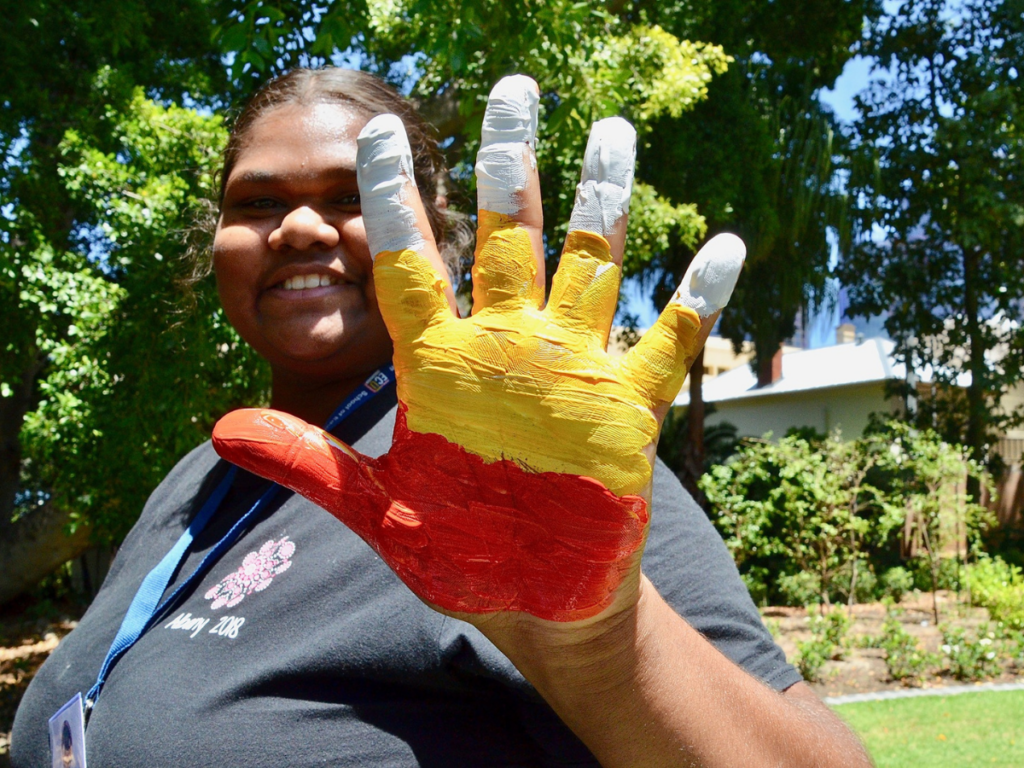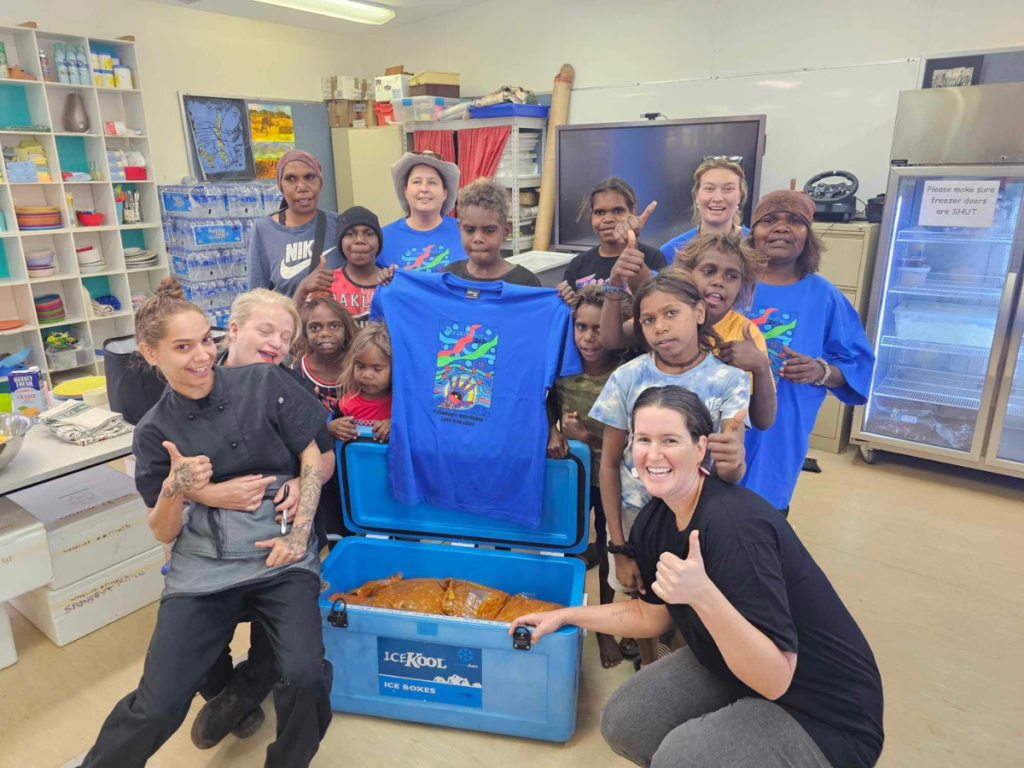Foundation for Rural & Regional Renewal (FRRR)
In 2013, a group of like-minded and passionate home economics teachers in Western Australia got together to create an organisation focused on training and assisting young people to develop career pathways in the education, food and hospitality industries.
The group, called Live To Tell Your Story Inc (LTTYS), runs an annual program called Prepare Produce Provide Djinda Ngardak. This culinary program first launched in 2017 and offers First Nations youth (aged 15-17 years) the opportunity to attend a life-changing, week-long camp that shines a light on First Nations culture and connection to land and food. Attendees from across WA are trained and mentored by some of WA’s top chefs. The program celebrates culture, food and storytelling, as well as developing skills primarily linked to employment pathways.
LTTYS received a $10,000 Strengthening Rural Communities Grant to assist in delivering a revised version of Djinda Ngardak alongside the 2023 Desert Dust Up. This annual event brings together eight schools from the Ngaanyatjarra Lands in the Goldfields-Esperance region of Western Australia for three days of activities.
The theme for the program was “Let’s Power-up for Dust Up”. In adapting to the requirements of Desert Dust Up, LTTYS worked closely with the Ngaanyatjarra Lands Schools leadership team, staff and cultural leaders to prepare nutritional meals, access local food sources and create a culturally responsive ‘food skills’ development program to complement both the social and educative aims of Desert Dust Up. The model combines traditional cooking practices with contemporary recipes and styles.
Over 17 days, the Prepare Produce Provide Djinda Ngardak team delivered workshops at seven campuses across Ngganyatjarra lands. Students and staff were active participants and there was a noticeable increase in school attendance as their trip progressed. The workshops were guided by Indigenous Elders and chefs using gathered bush ingredients and provided an insight into ancestral culinary heritage. Evening sessions were also held to support and educate teachers in the delivery of food-related workshops that they could incorporate in their classroom teaching. Additional community members, including police, nurses, Elders and rangers, also participated in the delivery of the workshops.
In addition to teaching the basics of food hygiene and nutrition, and being mentored by industry professionals, the culinary workshops delivered a range of other soft, transferrable skills, as well as sharing and exchanging cultural knowledge, skills and traditional practices, storytelling and enhancing culinary skills.
The program culminated in the delivery of healthy lunchboxes for participants at the 2023 Dust Up. Across the three days of events, more than 4,000 pieces of food were cooked and served to over 350 guests in the local and wider communities. The meals reflected learnings and the work achieved from the workshops on the Lands.
While the 2023 Djinda Ngardak Dust Up program was deemed an outstanding success, it certainly wasn’t without its challenges such as shifting timelines, changing numbers for catering and food supplies either missing or simply not available.
Catherine MacDougall, founder of LTTYS, said that the support from FRRR has provided an opportunity to build networks with additional community members that will be called upon for 2024 Dust Up.
“Relationships are key to the sustainability and growth of the program. FRRR has provided support funds to enhance the Dust Up program, originally developed to address the large issue of food insecurity in remote regions of Western Australia. Dust Up is now a significant program for the LTTYS organisation. It reflects the passion and dedication of our team.”
Beyond the Bell Great Southern Coast applied to the In a Good Place program, on behalf of the Southern Grampians Live4Life Partnership Group, for funds to support the implementation of the Live4Life model in the Southern Grampians Shire.
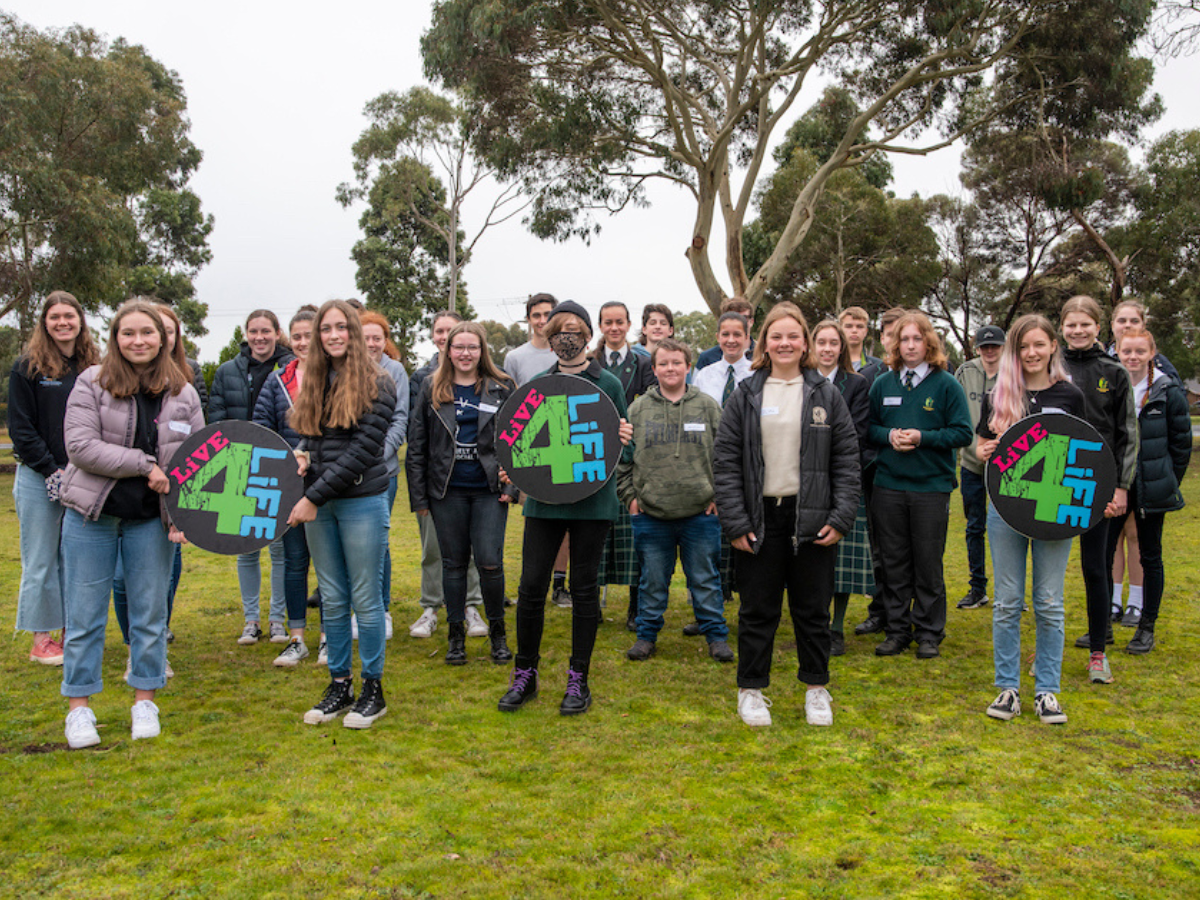
Live4Life is a community-grown, evidence-based, rural youth mental health model designed to prevent youth suicide. The Live4Life model aims to ensure that young people, teachers, parents and the wider community are better informed about mental ill health so they can be proactive in identifying the signs and symptoms of an emerging mental health issue before a crisis occurs.
The Live4Life model focuses on an ‘upstream’ approach to mental health education and suicide prevention to build resilient young people and communities. This is achieved by ‘wrapping’ protective factors around young people such as supportive relationships, support at critical times, positive help-seeking attitudes, connection to family, school and community and positive peer role models.
The school-based project to support Youth Crew activities and mental health education was all geared up ready to go when COVID first struck and schools and communities across the country went into lock-down.
After a year of navigating the challenges of not being able to deliver face-to-face programs and other challenges such as the loss of the Youth Engagement Officer, who normally coordinates the crew activities, the group developed new strategies and approaches that enabled them to successfully deliver the activities in a COVID-safe manner, including a new model of blended Youth Mental Health First Aid (YMHFA) training.
The group was highly successful in maintaining the momentum of the project, despite delivering a personal development program and training in a lock-down environment. They launched a social media presence on Instagram during Mental Health Week and created various collateral and promotional materials such as stickers, posters and help-seeking flyers to use in info packs to be distributed to students at in-school promotional events.
Once the Partnership Group was able to recommence activities within the community, they successfully delivered a series of Leadership and YMHFA courses and training sessions using a mix of face-to-face session and a blended online model via Zoom, reaching across six schools and eight allied community-based organisations that work with young people.
The organisation reported that what they were most proud of about the expansion of the Live4Life project into the Southern Grampians Shire, which they estimate has directly benefitted at least 950 people, was the engagement of the young people who joined the Live4Life CREW. They also mentioned the local YMHFA Instructor training, which has increased the community’s capacity to deliver more training across the Southern Grampians region.
The lastest news on the project from the Southern Grampians Live4Life website reports:
The project has led to increased community capacity and shared awareness of preventative mental health strategies through the MHFA training, as well as a deeper engagement with the Partnership Group in a broader context. They report that there is a noticeable increase in collaboration across the Southern Grampians area, possibly due to participation in the Live4Life initiative that connected people and agencies / organisations, and promoted collaboration centred on young people in the Shire.
“I think the most rewarding part of being in the Crew is seeing the difference you’ve wanted to achieve happen. Getting people into the idea of talking about mental health is hard but I think it’s slowly starting to happen, with the Crew being a part of that change.” – 2023 Crew member, Southern Grampians
Mission Australia has worked in partnership with Mid Coast 4 Kids to deliver ‘The Common Approach’ training to build capability for a whole of community response to child youth wellbeing in the Mid Coast region.
The Mid Coast was dramatically impacted by the South Eastern Australia floods in 2022. The townships of Taree, Wingham and Gloucester were inundated or compromised with flood waters and structural damage cutting communities off for long periods. There was flood damage to farm lands, residential housing areas and outlying communities. This disaster compounded significant stress that has been experienced in the communities for an extended period due to the impact of prolonged drought, COVID-19 and bushfires.
As a result, early childhood centres and schools reported increased anxiety and trauma-related behaviours in children and young people, and the service system was not coping, with allied health and other support services reporting wait times of more than 12 months.
‘The Common Approach’ has equipped a range of members of the Mid Coast community with the skills to have quality conversations and build resilience to respond to the wellbeing needs of children, young people and their families, now and into the future. In total, 228 people including community service, health and education professionals, community volunteers and parents were trained to have evidence based, holistic conversations with children and young people about all aspects of their wellbeing.
Participants report increased confidence in being able to support children and young people to identify strategies to improve individual wellbeing. “Through this intervention we have equipped our community to share responsibility for promoting and supporting the health and wellbeing of children and young people in our community, via evidence informed practice,” says Program Manager Bree Katsamangos.
“Additionally, practitioners will benefit from the opportunity to engage in a bi-monthly Community of Practice to support ongoing development and practice.”
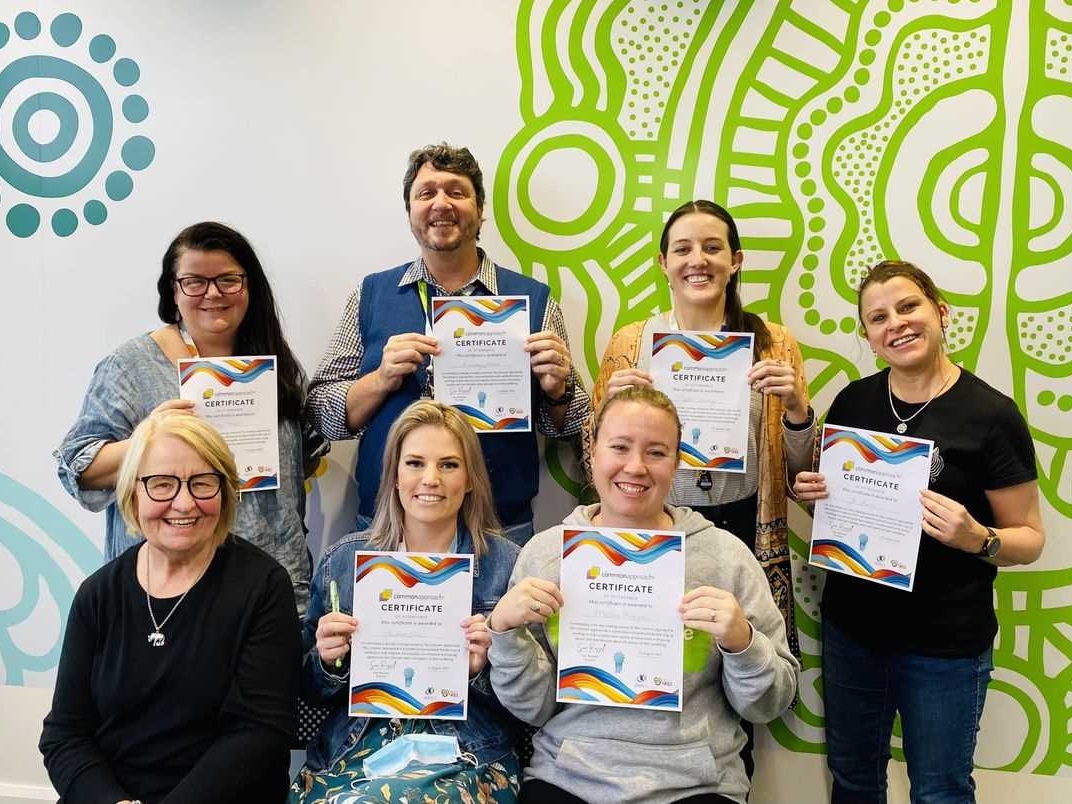
West Coast Connect (WCC) was established in 2013 to support social and economic development around Queenstown and the west coast of Tasmania. With a staff of four, a committee of five, and 25 volunteers, WCC aims to provide supportive core services that encourage a shared, communal impact to socio-economic issues within the community and the region.
Growing training opportunities
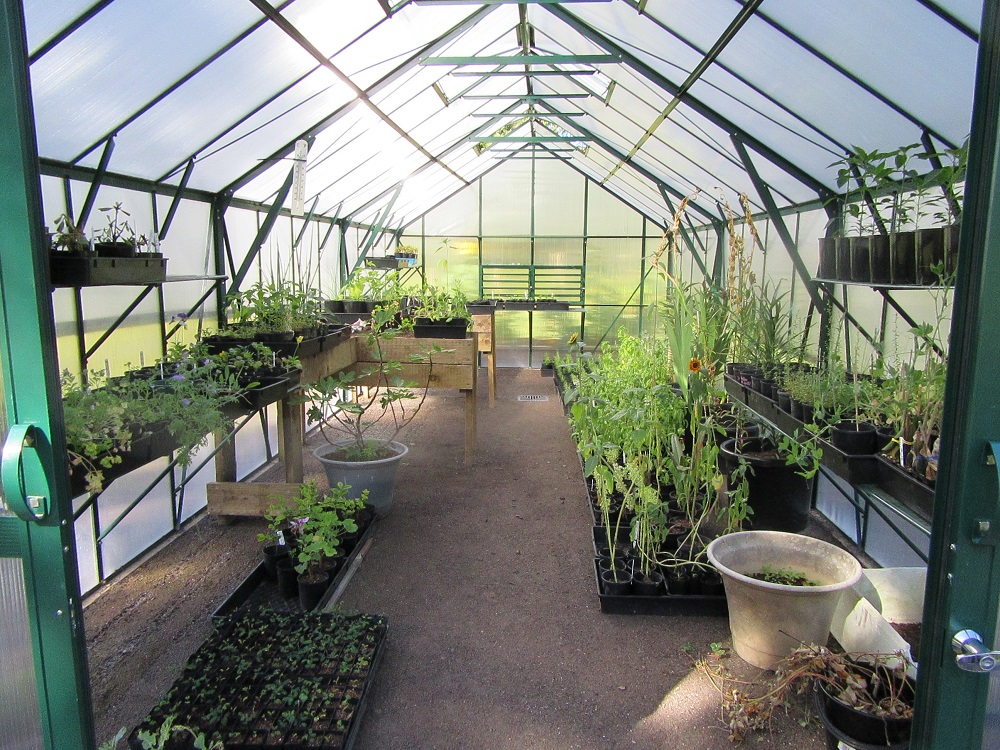
With the West Coast of Tasmania losing their TAFE Tasmania Campus over 10 years ago, community members only had access to training organisations that are located a minimum of 200km away.
To address skill shortages and provide job opportunities, WCC decided to offer vocational training in horticulture, conservation, land management and landscaping. They devised a plan for a new training facility to offer short courses and vocational training in conjunction with TasTAFE – BUT first they needed to equip the training grounds with essential infrastructure.
On the ground training aims to raise local employment
WCC secured a Strengthening Rural Communities grant of $9,200 to purchase a greenhouse, garden beds and planter boxes that were accessble by people with mobility issues. This equipment was manufactured by Qnique Products, a Social Enterprise that engages in vocational carpentry and joinery training for unemployed residents and residents with disabilities.
The horticultural facilities serve as a practical learning area, both as a hands-on training ground for vocational training in horticulture, landscaping and conservation and land management, and for the wider community, as an area for exploring and learning about growing organic foods, growing herbs, establishing and maintaining a cottage garden or growing fruit trees in a harsh climate.
Having the greenhouse also meant WCC could commence the Training and Work Pathway Program – for long-term unemployed jobseekers. Participants were involved in the initial establishment of the center, from building the access path to putting in place the raised garden beds and building in ground ones.
“Community interest in the centre was great from the beginning. Community short courses run at the centre were very popular and received great feedback. Enquiries about further courses are constant.”
Unexpected value for the community at large
Additionally, the Centre proved to be of great value to the community after the Queenstown community garden was forced to close in August 2020. WCC now sees a need to further develop the centre for greater access to the community at large and wants to establish mini-greenhouses and garden beds for local residents with an interest in gardening but no opportunity to do so at their home.
“West Coast Connect wishes to express our thanks for the grant money. Without this funding, the establishment of the horticultural training and discovery centre would not have gone ahead due to financial restraints.”
In 1979, an idea was formed between a bunch of country music loving mates over a few drinks around a campfire in the south west of WA. It became the Country Music Club of Boyup Brook (CMCBB), and before long, they were putting on a show on a regular basis.
Since 1986, the Boyup Brook Country Music Festival has been a major drawcard for this small farming community, attracting more than 10,000 visitors. The CMCBB does a lot more than put musicians on a stage though – there is a strong commitment to upskilling and training it’s volunteers and trainees in all aspects of event planning, including administration, bookkeeping, budgeting, grant writing, event management and office procedures, supporting them to gain financial literacy and job readiness skills. This benefits a core group of 20 volunteers that contribute to pre-planning throughout the year, and 150 during the Festival weekend. The Festival also provides the main fundraising event for more than 36 local community groups that participate during the weekend.
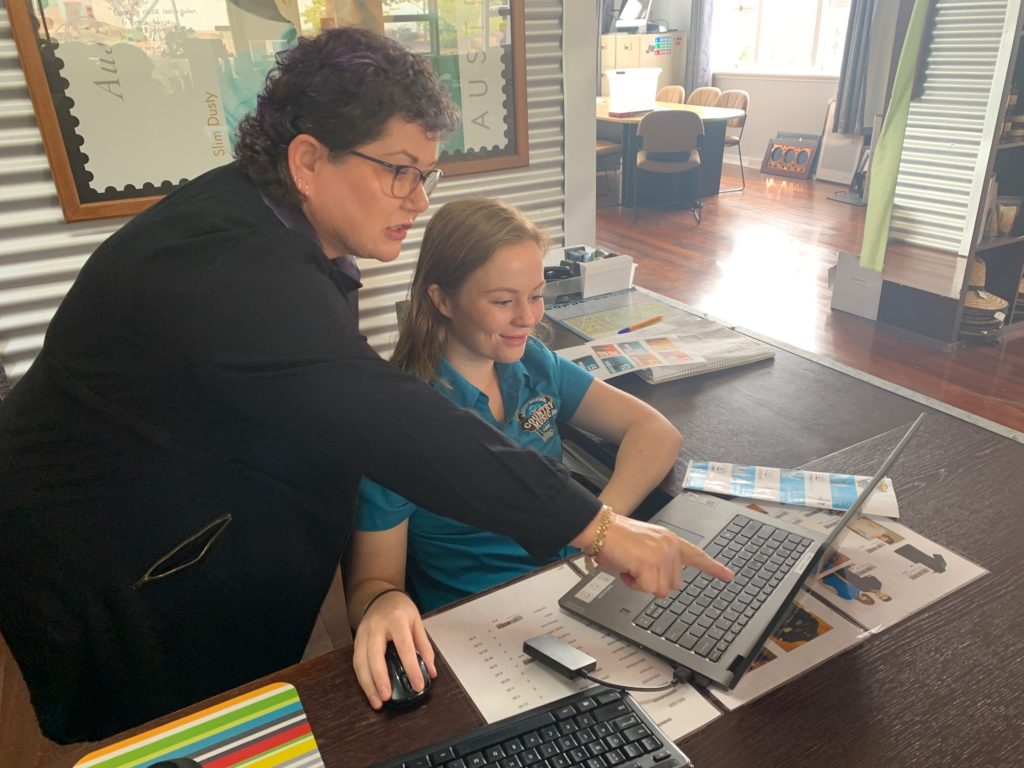
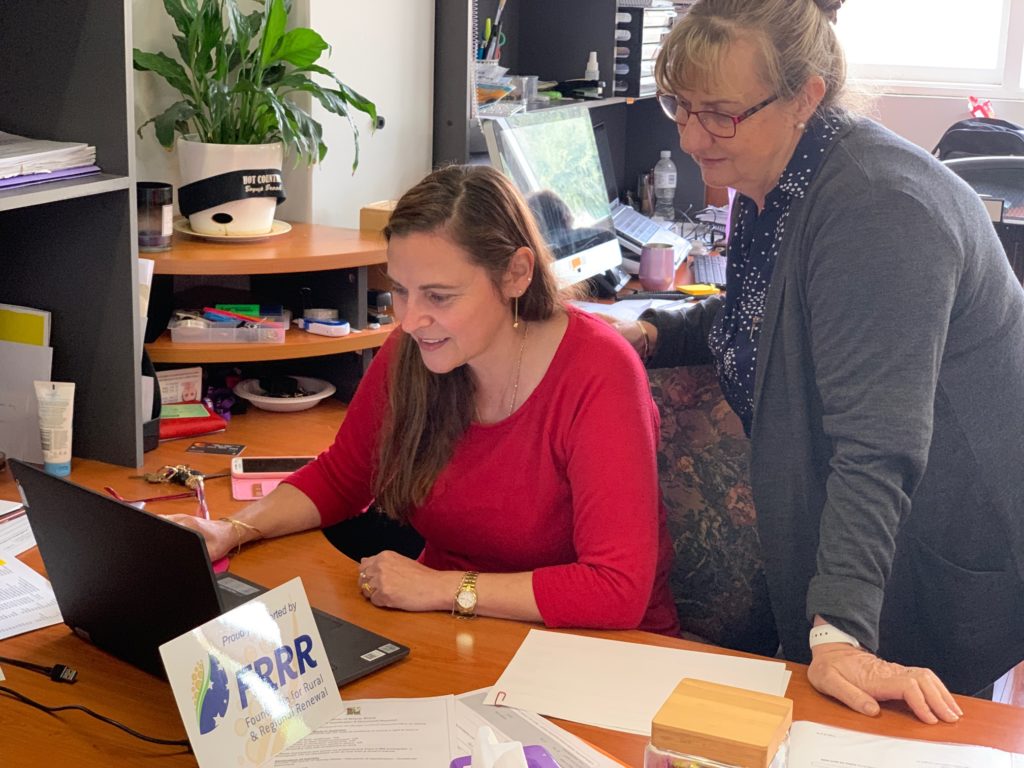
A couple of bad years recently set the club back: in 2017, flooding required the festival to be relocated; and in 2018 the club was hit by a sophisticated ticket scamming operation. On top of all this, the IT equipment available to the group was ageing and unreliable, often freezing unpredictably. Two of the computers were classed as ‘vintage’ by Apple, and the club said they could take a “very long time before they decide to boot up and one makes a noise like crickets are in the building.” This hurdle was adversely affecting the efficiencies and upskilling of the core group volunteers, not to mention the security of ticket sales and smooth running of the festival. But the tough luck the Club had run into had affected their capacity to invest in new equipment.
Daly and Sharon Winter, CMCBB’s President and Music Director, say the Festival helps a small rural community build a vibrant and sustainable community.
“It has wider audience appeal with a multiplier effect for injecting new capital into the local economy, and improves financial well-being within our community. The Festival is a celebration of our country lifestyles and community spirit. The event encourages hundreds of visitors to our state, providing a great boost to our tourism.”
Through the ANZ Seeds of Renewal program, the Club was successful in gaining new equipment. Via the Lenovo stream of the program, the Club was delivered three new Lenovo Thinkpads to support the events future operations, productivity and skill development of the group and volunteers.
The Club also plans to train staff and volunteers to scan, edit, and save photographs and documents to preserve its history as one of the oldest Incorporated Country Music Clubs in Australia and Western Australia.
Some of the volunteers use the equipment throughout the year, and under the guidance of the committee a young employee of the club recently completed her Certificate II and III in Business, plus Event Management modules. In their report, the Club wrote: “Learning new skills through the Club has led past volunteers to new employment options and keeps people living within our rural town and region.”
Nicki Jones, a volunteer, was ecstatic when the new laptops arrived, and with them, she says she achieved much more than she anticipated.
“Not only were they efficient, user friendly and supported current applications, they had a webcam and sound! This might initially sound silly, but in the big picture, this allowed me to join webinars and learn new software packages and how to use the computer to better capacity. I found one of the new software packages extremely useful and have now produced several documents with it for the Club. These documents are up to date, professional and easy to read.”
The experience and access to technology, she said, has built her self-esteem and confidence, and she has since been successful in seeking full-time employment, bringing her new skills to her position.
“I cannot thank FRRR and ANZ enough for making life so much easier.”
In 2013, the Mirboo North Community Bank brought the district and surrounds together to identify and prioritise the region’s future recovery and resilience activities following the 2009 Victorian bushfires. From the meeting, what became apparent was the gap in local education and training to support and engage the community in gaining practical skills and knowledge that would increase local capacity.
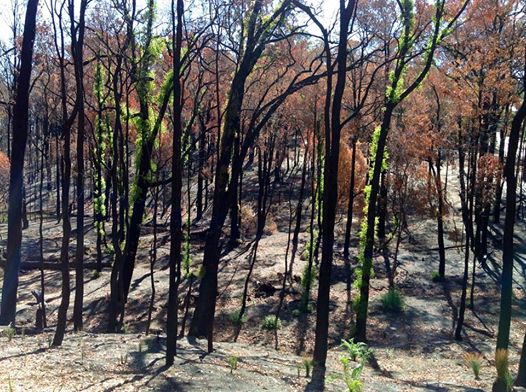
The Boolarra Community Development Group help promote the social, economic and environmental development of Boolarra and surrounds, taking lead from the community. They work as a liaison between local and state government departments, not-for-profits and community groups to achieve positive outcomes for the region.
They had attended the community meeting in Mirboo and recognised the opportunity to support their region to fill this training and education gap. Reaching out to the Boolarra community they identified a series of courses that would be in demand including event management, safe food handling, chainsaw training, barista training, small motor training, environmental gardening and first aid training courses.
Using a $19,950 grant from FRRR’s Grants for Resilience & Wellness grant program, funded by the Victorian Bushfire Appeal Fund, the Boolarra Community Development Group ran nine courses over a year. The Development Group works with local community groups to actively encourage members to participate in the training course. They also had a focus on increasing female participation, which was also identified as a community priority during their consultation.
In total, the courses attracted over 90 participants which was well above the expected target and an impressive feat for a small rural community. Each course was met with lots of positive feedback about the content and delivery of the training sessions.
The district is now benefiting from the breadth of skills and abilities available within the community, reducing the need for outsourcing and supporting the vitality of the region. Many participants flagged that they are interested in the potential for more workshops and training courses to run in the future.


